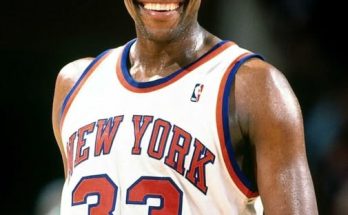The Rangers spark a new era, naming David Quinn, Joe Sacco, and Ty Hennes as assistant coaches to bolster their bench. For a franchise built on tradition, grit, and passionate fan support, this trio represents more than a routine hire—it signals a commitment to innovation, stability, and a re-energized push toward a championship-caliber future.
In the world of hockey, coaching staffs often determine the fine line between playoff contention and an early exit. Systems, player development, and bench management all fall under their domain. And with this new trio, the Rangers have built a coaching cabinet designed to enhance every phase of the game. Each of these men brings distinct strengths to the table, creating a powerful blend of experience, player relatability, and forward-thinking hockey acumen.
David Quinn is no stranger to Rangers fans. His return marks a full-circle moment, having served as the team’s head coach from 2018 to 2021. In those years, he became known for developing young players like Adam Fox, Igor Shesterkin, and Kaapo Kakko, as well as navigating a turbulent rebuild. Though his tenure didn’t include a deep playoff run, Quinn built strong relationships with the roster and laid foundational pieces for the current core. His reputation as a developmental mind and players’ coach is well-established. Now, with a new head coach in place, Quinn steps into a supporting role with the freedom to focus on systems and mentorship—an area in which he thrives.
Joe Sacco, meanwhile, brings a wealth of NHL coaching experience, having served as an assistant coach with the Boston Bruins and previously as head coach of the Colorado Avalanche. Sacco is known for his defensive expertise and ability to connect with players across all skill levels. His years in Boston saw him work closely with a core group that was annually among the league’s best in goals-against average and penalty killing. He’s a detail-oriented coach, capable of tightening up defensive structures without suffocating offensive instincts. That balance will be critical as the Rangers continue to fine-tune a roster capable of high-octane scoring but in need of consistent back-end discipline.
Then there’s Ty Hennes, one of the game’s brightest up-and-coming development minds. Hennes previously served in the Pittsburgh Penguins organization, where he gained a reputation as a player whisperer—particularly with younger talent and prospects transitioning to the NHL. His modern approach to skill development, video analysis, and communication fits perfectly into a league that increasingly values speed, IQ, and creativity. Hennes may not carry the same marquee coaching resume as Quinn or Sacco, but in a league leaning heavily into youth, his skillset may be the most impactful of all.
Together, this coaching trio is more than the sum of its parts. They offer complementary perspectives that will allow the Rangers’ bench to adapt and respond to the unique challenges of an 82-game season and a high-pressure playoff environment. In Quinn, they have a trusted voice who understands the culture and core personalities of the Rangers locker room. In Sacco, they gain a defensive mastermind capable of crafting winning structures. And in Hennes, they acquire a forward-thinking developer who can fine-tune the next wave of stars already beginning to emerge from the pipeline.
It’s also worth noting the timing and strategic significance of these hires. With the Metropolitan Division as competitive as ever, the Rangers cannot afford to be stagnant. Teams like Carolina, New Jersey, and the Islanders continue to build with an eye on long-term contention. The Rangers must match that intensity and strategy off the ice before they can execute on it. The naming of this assistant coach group is a clear indicator that the front office and new head coach are aligned on building a staff that can maximize both veteran talent and the growth of future stars.
This trio also adds depth to the coaching staff in a way that allows for real-time adjustments and tactical nuance. With Quinn’s familiarity with many on the roster, Sacco’s proven command over defensive systems, and Hennes’ innovative approach to player growth, the Rangers are setting themselves up for adaptability. That adaptability is no longer optional in today’s NHL—it’s a requirement.
Player response will be crucial. The locker room must buy into the new direction, and early indicators suggest that will be the case. Many Rangers veterans have a history with Quinn and respect his approach. Sacco brings instant credibility, particularly among defensemen and penalty killers who appreciate a structured, no-nonsense approach. Hennes, meanwhile, is the kind of coach that young players gravitate toward—his reputation as a motivator and teacher precedes him. For a roster that blends seasoned pros with rising young stars, that diversity of connection may be what ultimately sets this group apart.
While there will always be scrutiny in New York, these hires offer the kind of cohesion and clarity that fans have long hoped to see. There’s no guarantee of success in the NHL—injuries, streaks, and chemistry issues can derail even the best-laid plans. But the hiring of Quinn, Sacco, and Hennes signals a serious, thoughtful approach to building a backroom that reflects the ambition of a franchise hungry for its first Stanley Cup since 1994.
Leadership at the assistant level is often underrated in the public eye, but within locker rooms and management circles, it’s considered critical. These are the voices players hear during practice, on the bench during high-stress moments, and in those mid-season team meetings that define playoff readiness. These coaches will be trusted not only to implement systems but to nurture belief. Belief that this Rangers group can win, that its identity is strong, and that its leadership is united.
As training camp nears, all eyes will turn toward how these new coaches integrate into daily operations. The systems they implement, the lines they adjust, the special teams they fine-tune—every decision will be scrutinized. Yet if the hiring process is any indication, the Rangers are no longer simply reacting to the landscape of the league—they are dictating their own pace.
In naming David Quinn, Joe Sacco, and Ty Hennes as assistant coaches, the Rangers are doing more than filling vacancies. They are crafting a bench built to elevate, to push, and to win. The pressure will be high, expectations even higher. But for the first time in a long time, the structure behind the bench looks not only competent, but cutting-edge. The players will feel it. The fans will sense it. And the rest of the NHL should take notice.
This is not just a reshuffling of names. It’s the start of something. Something new. Something necessary. Something bold. The Rangers have struck the match—now it’s time to watch the fire grow.



